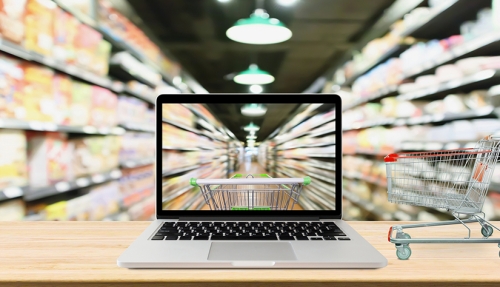-
View article
 #ACT2028
#ACT2028Olivier Gavalda, Chief Executive Officer of Crédit Agricole S.A., explains ACT 2028
2025/11/18
- #Innovation
- 2020/06/04
- 0
-
14
Will the public health crisis accelerate the digitalisation of businesses?
One third of France’s salaried workforce (nearly 10 million people) was furloughed in April, and – this is no longer a surprise – the ongoing economic crisis will unfortunately lead to jobs being destroyed over the coming months.Business has nevertheless picked up in some areas (e.g. in the digital sector) during the crisis, hinting at healthy future employment prospects.
While an abundance of job offers are currently jostling for attention for roles in the front line of the crisis (nurses, auxiliary nurses, delivery workers, security guards, order pickers, agri-food workers, lorry drivers, etc.), the kinds of roles that are likely to fare best over the coming months are those connected with digital technology.

Lockdown: digital technology to the rescue
The two months of lockdown severely tested many types of roles. As shops closed, making bricks-and-mortar retail impossible, other services like healthcare had to adapt to unprecedented circumstances.
Rapid growth in telemedicine
The first immediate breakthrough triggered by the COVID-19 crisis was the announcement by the health insurance authority that it would cover the cost of remote consultations. This was quickly and easily achievable thanks to existing platforms (such as DoctoLib, Ma Question Médicale, Hello Care and Livi). The results were soon clear, with the number of remote consultations rising from 10,000 a week at the beginning of March to almost a million a week today.
Will doctors – and especially patients – continue to make use of such services once the crisis is over? While by no means everyone will have had the opportunity to put this solution to the test, a majority will have done, and one can well imagine remote consultations becoming an enduring habit.

‘‘
Forty-four percent of general practitioners have had at least one remote consultation, compared with only 10% before the public health crisis.
E-commerce – especially in the food sector – and drive-through retail have proved resilient amid the crisis and could even emerge from it stronger. Although heavy demand during the lockdown meant the e-commerce supply chain was caught short, it would make sense for online retail to experience more rapid growth over the coming months, especially in some sectors where it is not yet the norm.
This experience is likely to raise a good number of questions for small retailers: how can I maintain contact with my customers during a crisis? How do I sell my products and keep my business afloat without any face-to-face customers? And how can I help vulnerable people in need of assistance and home delivery if I have no contact with them?
Demand for new apps, websites and digital strategies has risen sharply. The hitherto prevailing trend could even reverse, with e-commerce becoming the norm and bricks-and-mortar retail acting as a backup.
The last few weeks have shown us that digital technology can power media, retail and relational communication all at the same time.

Digital technology powering banks during the crisis
Digital technology has also played a major role in banking. Downloads and usage of mobile banking apps have surged, as has the use of secure messaging, while contactless payment has become the norm.
French retail banking networks have been vying to come up with ideas to meet their customers’ needs. Examples include new tools, notably to speed up application processing for government-backed loans, an e-withdrawal service so those with no bank card can withdraw cash from ATMs… and two robots designed by the Crédit Agricole group to handle loan repayment holidays. In concrete terms, one robot deals with repayment holiday requests, which are signed off by an in-branch advisor before being proposed to the customer. The second robot then applies the repayment holiday. The total time saving is 20 minutes per request.

Towards a “third phase of the digital revolution”?
User behaviours have been changing since March. Spending habits have been turned upside-down by digital events (with the help of webinars, online conferences, social media livestreaming, etc.), a sharp rise in connection volumes, and new uses such as growth in online purchasing among elderly people.
In the long term, automation and the increased use of robotics (a robot can’t catch COVID-19, though its motherboard may be susceptible to other kinds of viruses…) will undoubtedly gather pace, and with them the use of artificial intelligence (AI).
In the short term, while COVID-19 is unlikely to revolutionise the skills or work of existing digital experts, it will drive a powerful surge in volumes and lead to expertise being expanded and disseminated into every corner of businesses. There is, however, one fly in the ointment: cybercrime, which will take advantage of flaws in systems to extend its reach.
G.G
Sources: Crédit Agricole S.A. Group Economic Research, mbamci.com, francebleu.fr, agefi.fr








